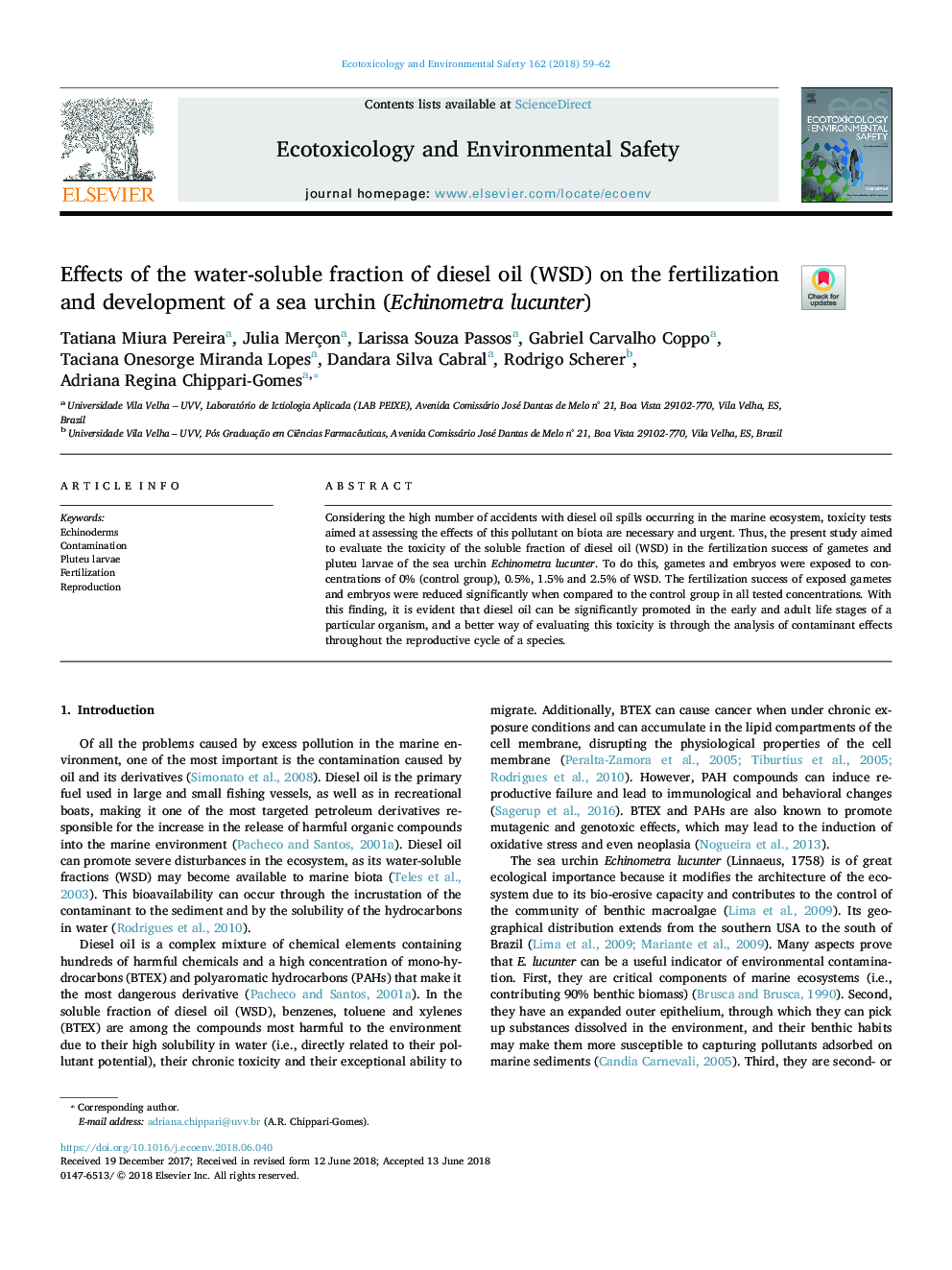| Article ID | Journal | Published Year | Pages | File Type |
|---|---|---|---|---|
| 8853214 | Ecotoxicology and Environmental Safety | 2018 | 4 Pages |
Abstract
Considering the high number of accidents with diesel oil spills occurring in the marine ecosystem, toxicity tests aimed at assessing the effects of this pollutant on biota are necessary and urgent. Thus, the present study aimed to evaluate the toxicity of the soluble fraction of diesel oil (WSD) in the fertilization success of gametes and pluteu larvae of the sea urchin Echinometra lucunter. To do this, gametes and embryos were exposed to concentrations of 0% (control group), 0.5%, 1.5% and 2.5% of WSD. The fertilization success of exposed gametes and embryos were reduced significantly when compared to the control group in all tested concentrations. With this finding, it is evident that diesel oil can be significantly promoted in the early and adult life stages of a particular organism, and a better way of evaluating this toxicity is through the analysis of contaminant effects throughout the reproductive cycle of a species.
Related Topics
Life Sciences
Environmental Science
Environmental Chemistry
Authors
Tatiana Miura Pereira, Julia Merçon, Larissa Souza Passos, Gabriel Carvalho Coppo, Taciana Onesorge Miranda Lopes, Dandara Silva Cabral, Rodrigo Scherer, Adriana Regina Chippari-Gomes,
